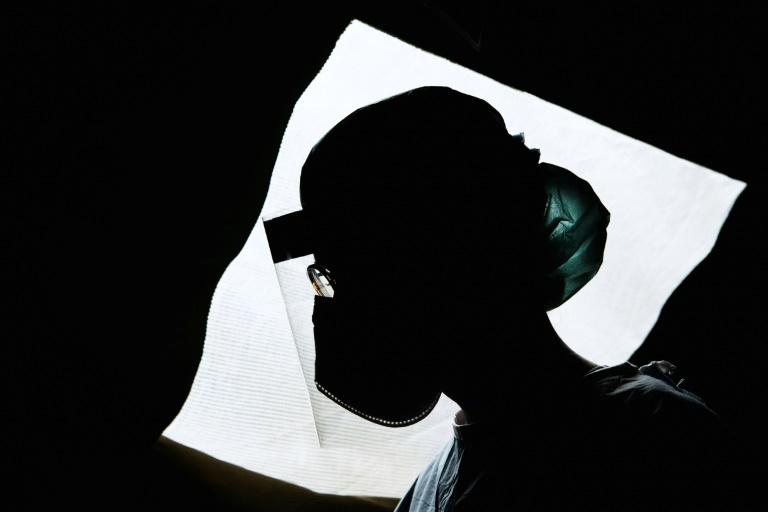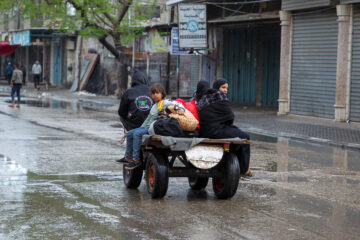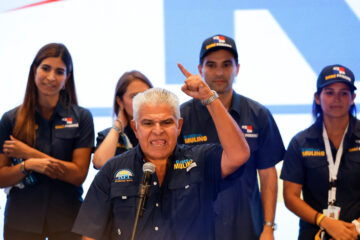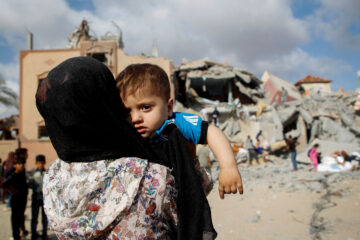EU haggles over virus rescue deal as WHO warns pandemic far from over
 A nurse conducts tests for the new coronavirus in a tent in the grounds of a private hospital in Stockholm (AFP Photo/Jonathan NACKSTRAND)
A nurse conducts tests for the new coronavirus in a tent in the grounds of a private hospital in Stockholm (AFP Photo/Jonathan NACKSTRAND)Bitterly divided EU leaders will try Thursday to hammer out a huge coronavirus rescue package, as the WHO warned the pandemic is far from over.
While there are signs the COVID-19 outbreak is slowing and some countries have started to ease restrictions affecting billions of people, the world is grappling with how to repair economic damage on a scale not seen for nearly a century.
Other nations are still in the early stages of the fight against a disease that has killed more than 180,000 people and infected 2.6 million worldwide, even as it appears to be peaking in Europe and the United States.
Oil prices and stocks rallied on Thursday after a virus-induced pounding earlier this week but uncertainty remained, with governments fearing a second wave of coronavirus infections if lockdowns are lifted too fast.
In Europe, still the worst-hit continent with 110,000 deaths, leaders are set to haggle via video conference on a giant economic recovery package, but a deep north-south divide threatens to scupper any progress.
– ‘Spirit of solidarity’ –
The fight has reopened the wounds of the 2009 economic crisis with debt-laden southern states like Spain and Italy, both badly hit by the disease, demanding help to get back on their feet.
“With the pandemic, nobody calls,” says Pedro Oran, a 53-year-old Spaniard who usually works by helping a plumber, as he lined up to collect food for the first time at a Madrid soup kitchen.
But richer northern countries like Germany and the Netherlands, while saying they are ready to help for now, insist they will not take the long-term step of pooling debt with Mediterranean governments they accuse of profligacy.
“In the spirit of solidarity, we should be prepared to make completely different, that is to say significantly higher contributions to the European budget over a set period,” German Chancellor Angela Merkel told lawmakers in Berlin.
In a sign of how far apart the bloc’s 27 countries are, leaders will not even issue their usual joint statement after the videoconference, a diplomat told AFP.
The divisions could not come at a worse time, with the eurozone economy suffering an unprecedented collapse in April due to the pandemic, according to a leading business survey by analysis firm IHS Markit.
– ‘Long way to go’ –
The pressure on governments everywhere to ease the economic pain is growing by the day, with tens of millions unemployed and several countries at risk of famine.
Some European countries have slightly eased coronavirus measures but bans on large gatherings have been extended.
Governments elsewhere are taking similar steps, with Vietnam’s commnuist authorities easing social distancing measures as cases plateaued, with experts saying the apparent success was down to aggressive containment and contact tracing.
“We go to each and every alley, knocking on each and every door,” said Nguyen Trinh Thang, a 72-year-old Hanoi resident who is part of a team tasked with zeroing in on any suspected cases.
Despite a long and porous border with China, the Southeast Asian nation has recorded just 268 virus cases and zero deaths, according to official tallies.
Yet World Health Organization chief Tedros Adhanom Ghebreyesus on Wednesday cautioned that the struggle is far from over.
“Make no mistake: we have a long way to go. This virus will be with us for a long time,” he said. “Most countries are still in the early stages of their epidemics. And some that were affected early in the pandemic are now starting to see a resurgence in cases.”
The WHO and other health experts have warned that strict containment measures should remain until there is a viable treatment or vaccine for the coronavirus.
– China boosts WHO funding –
But, as in Europe where the response to the virus has become increasingly politicised, the WHO has found itself at the centre of the storm.
China announced on Thursday that it will donate another $30 million to the WHO to help fight the pandemic, days after US President Donald Trump said he would freeze funding to the UN body.
Trump accused the WHO of covering up the seriousness of the COVID-19 outbreak in China before it spread around the rest of the world. The US is the WHO’s biggest contributor.
Australia’s Prime Minister Scott Morrison called Thursday for the WHO to be given powers similar to UN-backed weapons inspectors, allowing their experts to enter virus-stricken countries to help prevent future pandemics.
Morrison has already called for an independent investigation into the global response ot the contagion including the WHO’s handling of the crisis and China’s early response to the outbreak in Wuhan, where the virus emerged late last year.
It is the United States however that is the hardest-hit country on the planet according to official statistics, with more than 46,500 coronavirus deaths and nearly 840,000 infections.
The director of the US Centers for Disease Control asked Americans to prepare for a second, possibly more devastating, wave of coronavirus infections to coincide with the winter flu season.
The pandemic has overwhelmed US healthcare facilities, from the most developed parts like New York City to the Native American territory of the Navajo Nation in the southwest.
“Right here in the middle of the most powerful nation, the United States of America, our citizens don’t have the luxury of turning on a faucet to wash your hands with soap and water,” Navajo Nation President Jonathan Nez told AFP.
SOURCE: AFP











